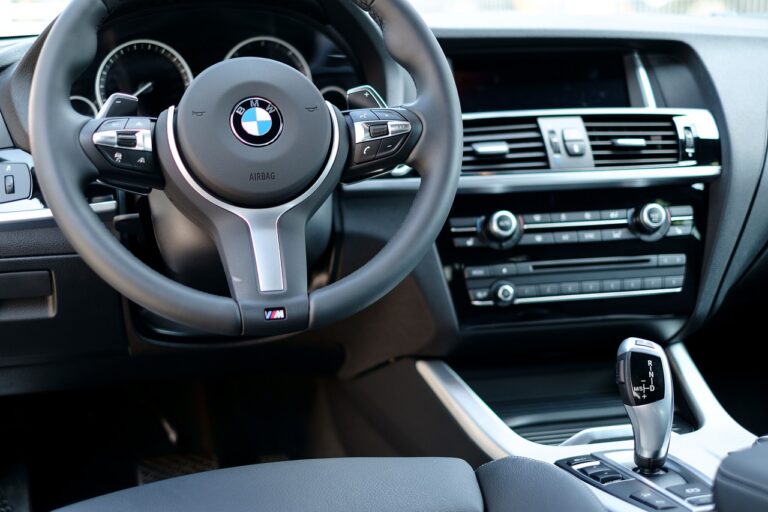The Role of IoT in Vehicle Health Monitoring: 11xplay reddy login, Laser247, Skyinplay exchange
11xplay reddy login, laser247, skyinplay exchange: The Role of IoT in Vehicle Health Monitoring
In today’s fast-paced world, technology is continuously evolving, and the automotive industry is no exception. With the rise of the Internet of Things (IoT), vehicles are becoming smarter and more connected than ever before. One of the key areas where IoT is making a significant impact is in vehicle health monitoring. By leveraging IoT technology, vehicles can now be equipped with sensors and connected devices that gather real-time data on various components of the vehicle, allowing for proactive maintenance and monitoring to ensure optimal performance and safety.
What is IoT?
Before delving into the role of IoT in vehicle health monitoring, let’s first understand what IoT is. The Internet of Things refers to a network of interconnected devices that can communicate and exchange data with each other seamlessly. These devices can range from smartphones and wearable gadgets to household appliances and industrial equipment. In the context of vehicles, IoT technology enables cars to be equipped with sensors and connected to the internet, allowing for remote monitoring and control of various functions.
The Role of IoT in Vehicle Health Monitoring
1. Real-Time Diagnostics
One of the primary benefits of using IoT in vehicle health monitoring is the ability to gather real-time diagnostics data. By equipping vehicles with sensors that monitor various components such as engine performance, tire pressure, and battery health, car owners and service providers can receive instant alerts and notifications in case of any issues or abnormalities. This proactive approach allows for timely maintenance and reduces the risk of unexpected breakdowns.
2. Predictive Maintenance
IoT technology also enables predictive maintenance in vehicles by analyzing historical data and patterns to predict when a component is likely to fail. By monitoring factors such as engine temperature, oil quality, and brake wear, IoT systems can alert car owners and service centers to schedule maintenance or replacement of parts before a breakdown occurs. This proactive approach not only minimizes downtime but also extends the lifespan of the vehicle components.
3. Remote Monitoring
With IoT-enabled vehicles, car owners can remotely monitor their vehicle’s health and performance using a smartphone app or web portal. Whether it’s checking the battery status, tracking fuel consumption, or locating the vehicle’s parking spot, IoT technology provides real-time data and insights that empower car owners to make informed decisions about their vehicle’s maintenance and usage.
4. Safety and Security
In addition to monitoring vehicle health, IoT technology enhances safety and security features in vehicles. By integrating sensors and cameras that detect hazards, monitor driver behavior, and alert emergency services in case of an accident, IoT systems can help prevent accidents and provide timely assistance when needed. Moreover, features like geofencing and remote immobilization enable car owners to track and secure their vehicles against theft and unauthorized access.
5. Data Analytics
Another key role of IoT in vehicle health monitoring is the use of data analytics to extract valuable insights from the vast amount of information collected by sensors and connected devices. By analyzing trends and patterns in vehicle performance, maintenance history, and driving behavior, car manufacturers and service providers can improve product design, optimize maintenance schedules, and enhance customer experience. Data analytics also enables predictive analytics and machine learning algorithms to predict future maintenance needs and optimize vehicle performance.
6. Fleet Management
For commercial vehicles and transportation companies, IoT technology plays a crucial role in fleet management and monitoring. By equipping each vehicle with sensors and telematics devices, fleet managers can track the location, performance, and maintenance needs of each vehicle in real-time. This level of visibility and control allows for efficient route planning, fuel management, and maintenance scheduling, ultimately improving the overall productivity and profitability of the fleet.
7. Environmental Impact
In addition to improving vehicle performance and safety, IoT technology in vehicle health monitoring also has a positive impact on the environment. By optimizing fuel consumption, reducing emissions, and promoting eco-friendly driving habits, IoT systems contribute to a more sustainable and greener transportation ecosystem. As car manufacturers continue to innovate and adopt IoT solutions, the automotive industry can play a significant role in reducing carbon footprint and promoting environmental responsibility.
FAQs:
Q: How does IoT technology benefit vehicle owners?
A: IoT technology benefits vehicle owners by providing real-time diagnostics, predictive maintenance, remote monitoring, safety and security features, data analytics insights, fleet management capabilities, and environmental impact awareness.
Q: Do all vehicles come equipped with IoT technology?
A: No, not all vehicles come pre-installed with IoT technology. However, aftermarket IoT devices and solutions are available for older vehicles to upgrade and enhance their connectivity and monitoring capabilities.
Q: Are there any privacy or security concerns with IoT technology in vehicles?
A: Yes, privacy and security concerns are valid considerations with IoT technology in vehicles. It is essential for car owners and manufacturers to implement robust security measures, encryption protocols, and data privacy policies to protect sensitive information and prevent unauthorized access.
In conclusion, IoT technology is revolutionizing vehicle health monitoring by providing real-time diagnostics, predictive maintenance, remote monitoring, safety and security features, data analytics insights, fleet management capabilities, and environmental impact awareness. As car manufacturers continue to integrate IoT solutions into their vehicles, the future of automotive technology looks brighter than ever before. Stay connected, stay informed, and drive smart with IoT-powered vehicles.







